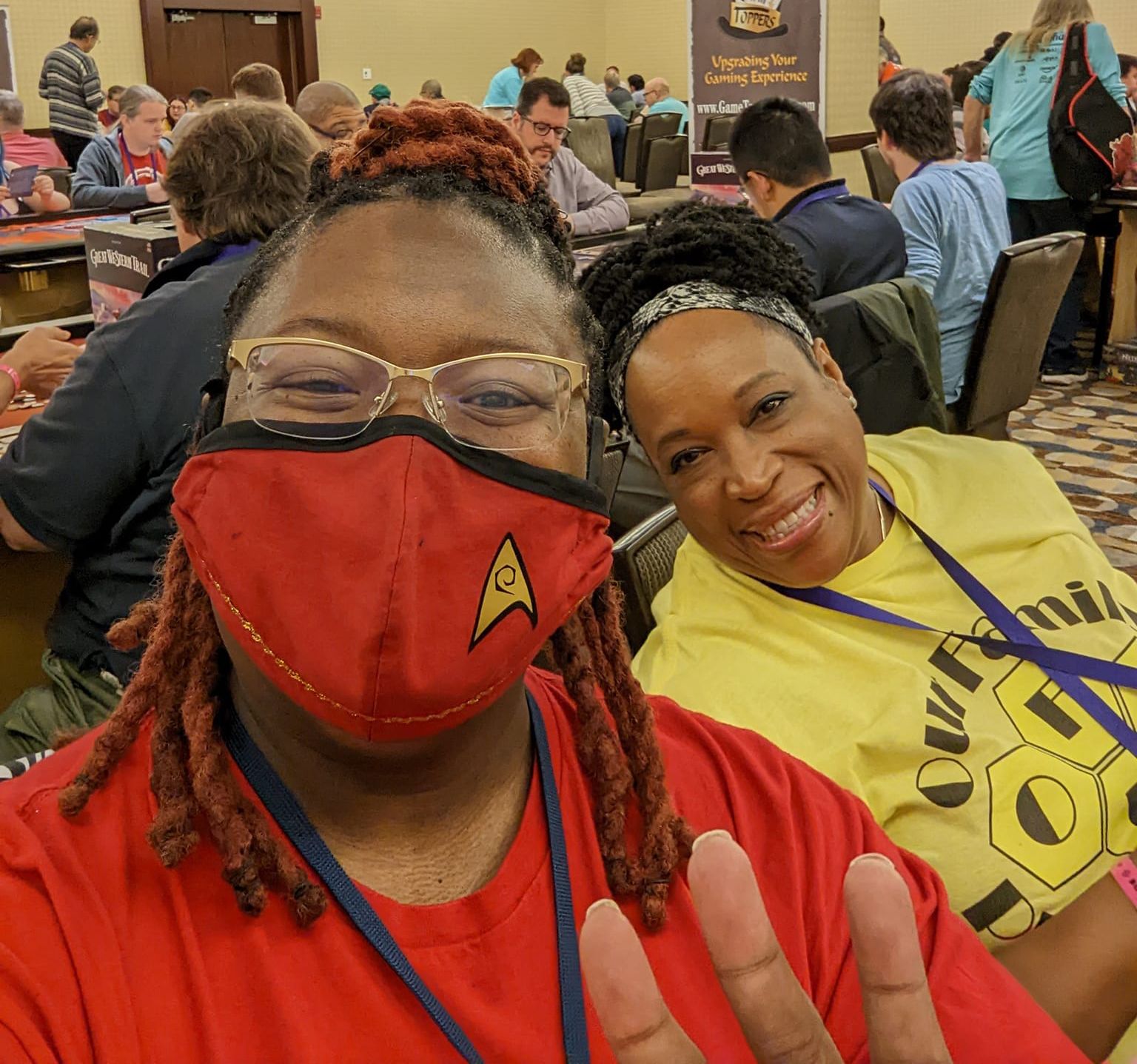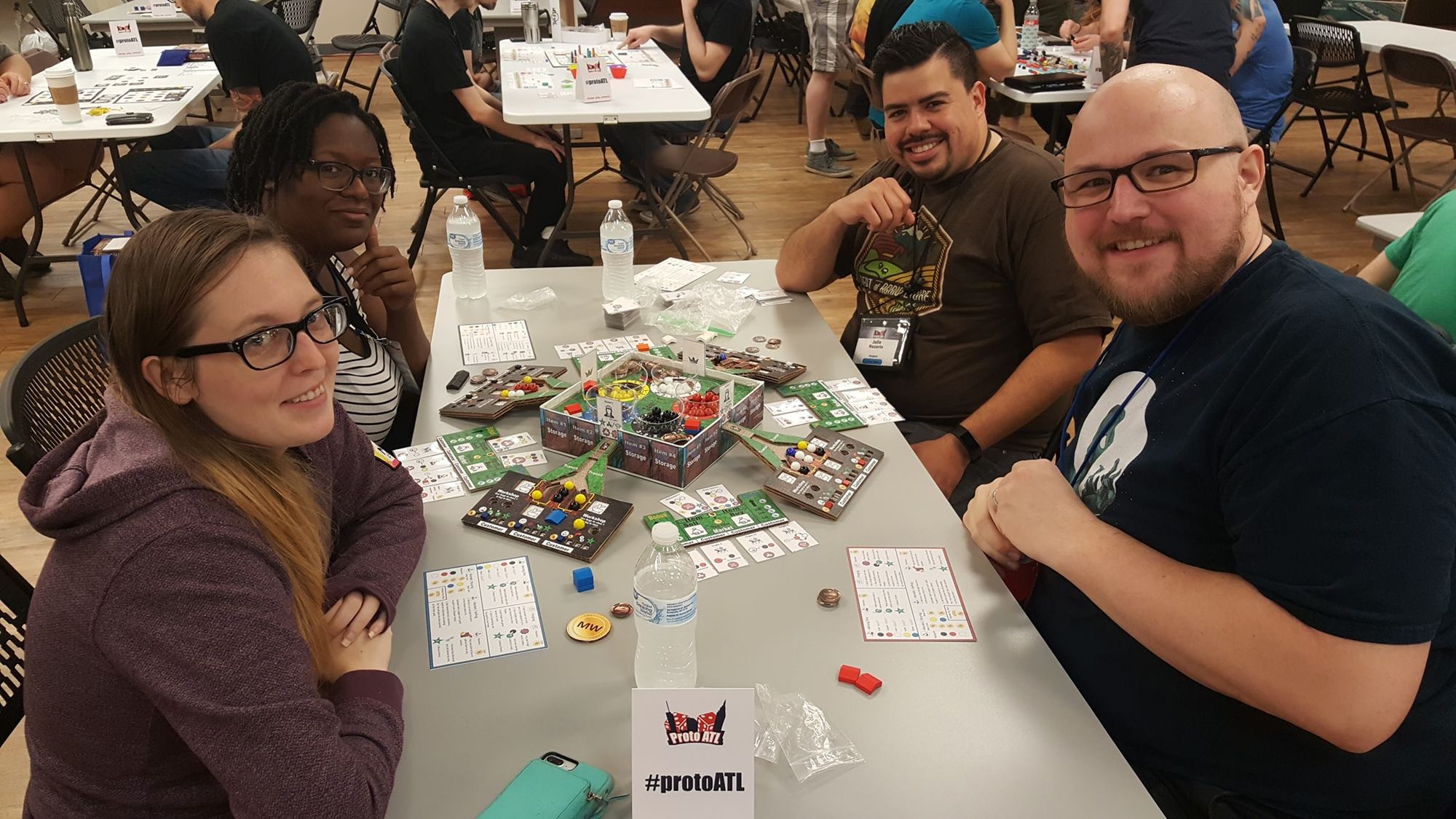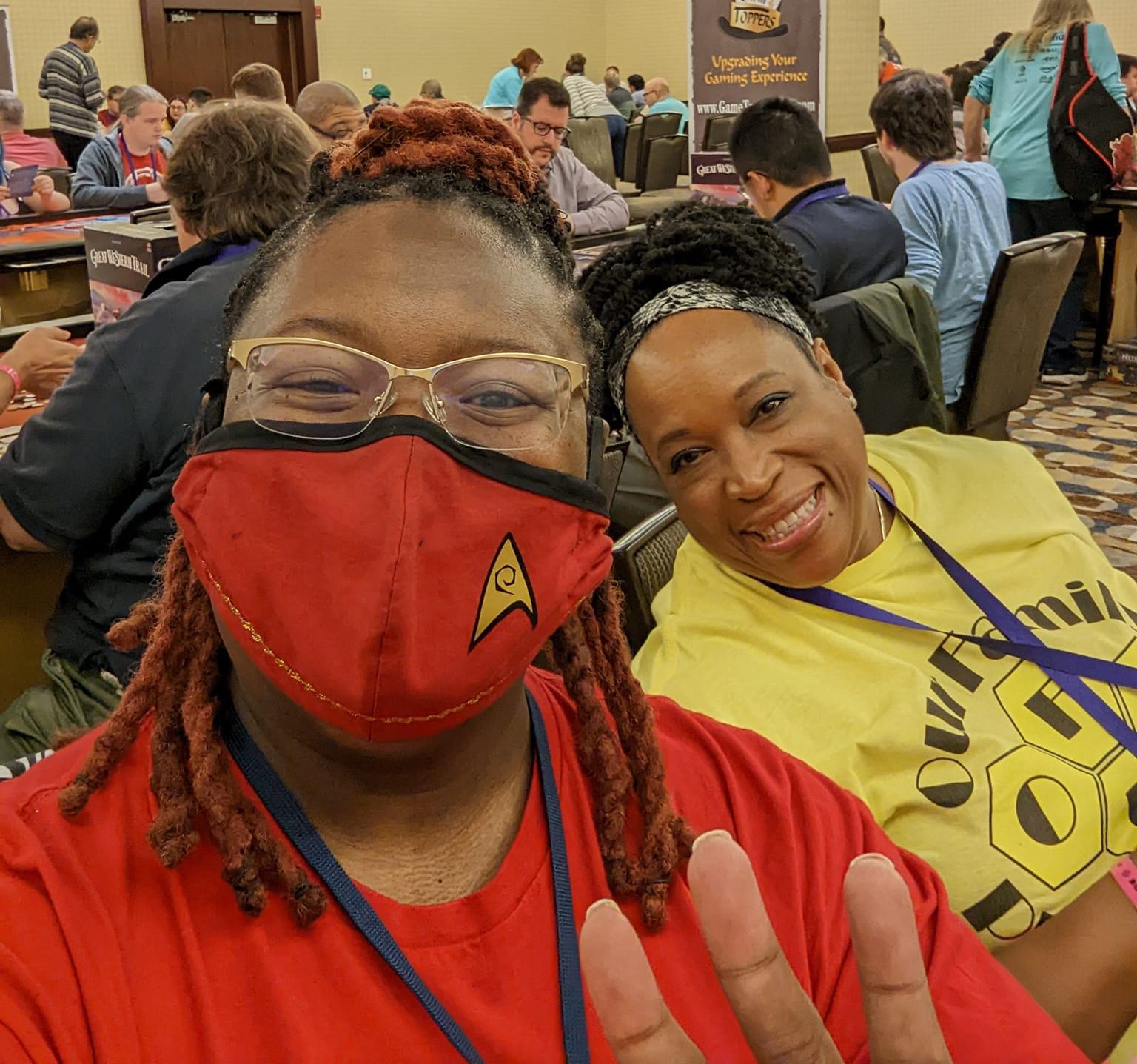This article was originally published for Girls’ Game Shelf.
Imagine walking into a store with a handful of tables in the back. You’re smiling because every wall and shelf is lined with board games, and it automatically feels comfortable because you’re surrounded by what makes you happy. You look expectantly at the back tables, hoping someone’s as happy to see you as you are to see them, but no one looks up.
You look at the front register, but the store owner is mixed in somewhere with the men in the back, and not in any rush to make himself known. You walk to the back, to make it more obvious you’re here for games too, and a guy looks up. You get a brief hello, then he’s back to his game. The other players never look up in the first place.
You stand right next to a table, looking at the board, picking up the rules. No response. You ask how long the game will last; someone shrugs and says, “We just started.” You take a seat and watch them play quietly, but no one starts a conversation. No one explains what’s going on, or asks how you found the shop.
You patiently wait until the game finishes, and when it does, ask if you can join the next game. One guy doesn’t respond. Did he not hear you? Another guy looks uneasily to his left, and instead of answering you, asks his friend, “You staying for another game?” The friend looks at his phone: “Nahhh, I think I’m out for tonight.” The guy glances back at you. “I’m not sure if enough of us are sticking around. That might be it for tonight.” He starts talking to another guy, and you wait in limbo. Ten minutes later, you decide it’s time to go home.
On your hour-long drive back home, you try to understand why it was so hard to play a game with people who enjoyed the hobby just as much as you. Was it because you were a stranger? Was it because you were a woman? Was it because you were Black? None of the options make you feel better about it, and mentally, you check off one more place you can’t go to get in a game.

This is what it feels like as a marginalized person trying to enter the gaming hobby. There is a huge social wall, which people on the other side might not realize even exists. This scenario didn’t happen to me once or twice. It happened to me several times. It happened in FLGS (Friendly, Local Game Shops) and conventions alike.
I’ve seen people post things like “Look for me if you want to game!” or “Everyone is welcome at my table,” but that’s not enough. When you enter a room with hundreds of strangers, you are overwhelmed with insecurity. I am at least. I feel swallowed up by the noise and the unfriendly glances hoping I won’t ask to join their game.
I see people having a blast, but their table is full. I linger nearby anyway, enjoying the good energy, but then it feels weird since I’m not talking to them, and I’m not sure how to start a conversation with a group of five strangers. I start wondering if I’m out of place because I’m introverted, or because I stick out like a sore thumb.
Up until recently, this was my con experience. Running into anyone I knew was like a small purchase of land after swimming in the ocean nonstop. I can’t speak for every marginalized person, but I can talk about my experience. When you’re in the minority, you can’t just accept things at face value. There is no face value. There are always several reasons why something may be happening, and you constantly have to consider every one.
Over the past week, I’ve been asked, “How can I help? How can I be a better ally?” Again, I can only speak for myself, but one of the biggest things I needed when I started out was a friendly face. Being open to diverse people coming to your table is different from reaching out and bringing diverse people to your table. If I am drowning in a sea of uncertainty, be the lighthouse. Make it easy for me to know you’re an ally.
If you see someone who looks lost, ask if they’d like to join a game. If you see someone by themselves, ask if they’re interested in playing a game. If someone is standing over your shoulder (and I’m guilty of this too) just watching you play, acknowledge them and ask if they’d like to join in the next game.
Maybe this sounds unappealing because it’d make you too vulnerable. If it does, think about it from the other person’s perspective. As the experienced gamer, isn’t it better if you risk the occasional rejection rather than the new person just trying to find their footing within the hobby? Isn’t it more important that you be the light that the people who need to can find?

My entire convention experience changes when I run into people I know. Even if I don’t start out knowing them, if I find a group that’s genuinely friendly, I stick around as long as possible just to enjoy that camaraderie. It recharges me and gives me courage to go find new groups in a sea of strangers.
So if you’re looking for a way to increase diversity, start there. Be the friendly face. It’s free, but it’s not easy. Don’t give up because people don’t take you up on your offer. What’s important is that the offer was made.
Be active in welcoming others, and be sincere. Be a light.
Fertessa Allyse is a board game designer based in Seattle who designed Book of Villainy and Wicked & Wise, and co-designed Mansplaining. She is currently a game producer at Funko Games (formerly Prospero Hall).


